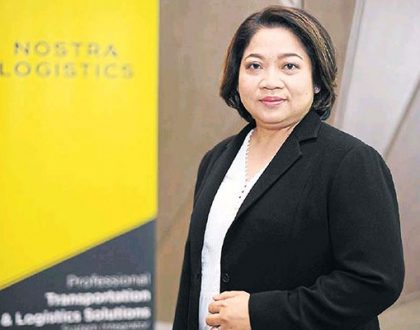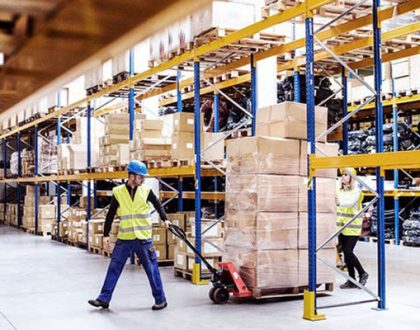Global trade compliance main focus of upcoming maritime logistics forum

By Patrick Burnson, Executive Editor · October 3, 2019
The 12th Annual Maritime Transportation Forwarding Logistics & Global Supply Chain Workshop will be staged by ABS Consulting in Miramar, Florida October 16 & 17. A major focus of the event will be trade compliance. In this exclusive interview, ABS president Albert Saphir shares his insights.
Logistics Management: What is the current status of USMCA? Brexit? U.S.-China trade?
Albert Saphir: All is extremely fluid at this point, impossible to say what will happen. USMCA should eventually be approved to replace NAFTA, but it seems to be a complicated trade agreement so no one can really put a clear timeline on this. BREXIT is chaotic – impossible to predict what will happen.U.S.-China trade continues to be unpredictable, maybe not as chaotic yet as BREXIT, but we are getting there.
LM: How can you help domestic shippers find affordable sources for the materials that they need to build their products, and companies whose products were once duty free now have duties to reconcile into their forecast?
Saphir: For some that has become a major challenge, regardless is they import directly or by from a supplier who in turn imports. Likely those materials were not duty free in the past, but carried some duty, for example 8%. But with the various sanction duties (which are ADDITIONAL to the regular duties) the additional cost can range easily from 10-40% currently. Some suppliers may absorb some or all of the cost due to long term contractual delivery contracts or try and “share” the additional cost with the supplier (especially China). In other cases it will be the end consumer who will pay more. Some manufacturers or distributors are moving into a FTZ environment, but that is not always easy and quick to do and also adds costs, but depending on the final supply chain process most of not all duties can be eliminated in some cases.
LM: How can shippers and logistics service providers build a strategic approach toward the Section tariffs in the new year?
Saphir: There’s not much logistics service providers can do other than react to their clients changing needs and offer relevant services. For example, some suppliers are moving out of China into Vietnam, Malaysia, and Thailand, so the logistics providers need to be in those markets to be able to service their U.S. customers.
LM: That’s seems like sound advice. Anything else?
Saphir. Yes. Importers need to continue to search for best possible options, clearly there is not one-size-fits-all answer but a long list of possible options potentially. The biggest challenge for all is that changes unpredictable and are happening fast on very short notice. That has never happened before, and international supply chains often plan out 1-5 years in advance on factories and manufacturing options so nothing can change “on the spot” easily.
LM: Can you explain how classification of items subject to the tariffs can be carefully analyzed if legacy systems are outdated?
Saphir: Importers need to very carefully reanalyze their HTSUS classifications (which they should have done in the past anyhow) to ensure that they are correctly classified. Some may find that there is a more appropriate classification out there that may not be as much impacted by the sanction duties than the one they have been using. But with most of Chinese products now having sanction duties, this exercise is not as productive as it may have been when the first round of China sanction duties came out. In addition, the importer opens themselves up to extra scrutiny by CBP if they change the classifications on items they have been importing. In other words, CBP may reject the new classification or will start asking questions about the differently classified items in the past which may come back to haunt the importer with the statute of limitations being five years.
LM: How do you help shippers review contracts and costs of their supply chains, since domestic shippers may have the cost of tariffs passed via suppliers without being made aware?
Saphir: Domestic manufacturers purchasing materials and parts may simply see an increase in their costing from their suppliers which may pass on some or all of the additional cost. Awareness should not be an issue, since at the end only the total cost will matter and how the two parties negotiate.
LM: What advice do you have for international shippers when reviewing Deliver Duty Paid (DDP) contracts to plan for possible tariff impacts in 2020. Any “fundamentals” to keep in mind?
Saphir: I am not a fan of DDP shipments, a lot of potential problem areas and mistakes than can be made. If the DDP contracts are legitimate all the way, negotiations between seller and buyer are no different than for any other mode of purchase.
LM: Finally, how can shippers ensure that the correct Customs bond in place?
Saphir: The majority of importers in the U.S. have continuous bonds with CBP. The amount of the continuous bonds are based on the expected annual duty liability towards CBP. Obviously, the various sanction duties now in place can considerably increase the annual duty amount owned to CBP, thus those continues bonds must be increased before CBP finds them insufficient. The importer needs to stay in close contact with their surety to monitor this.
Recommended Posts

Logistics leans on tech future
October 26, 2019

How Technology is Influencing the Logistics Market
October 26, 2019

Drone Delivery Canada Launches Deal With Top Logistics Company
October 26, 2019
